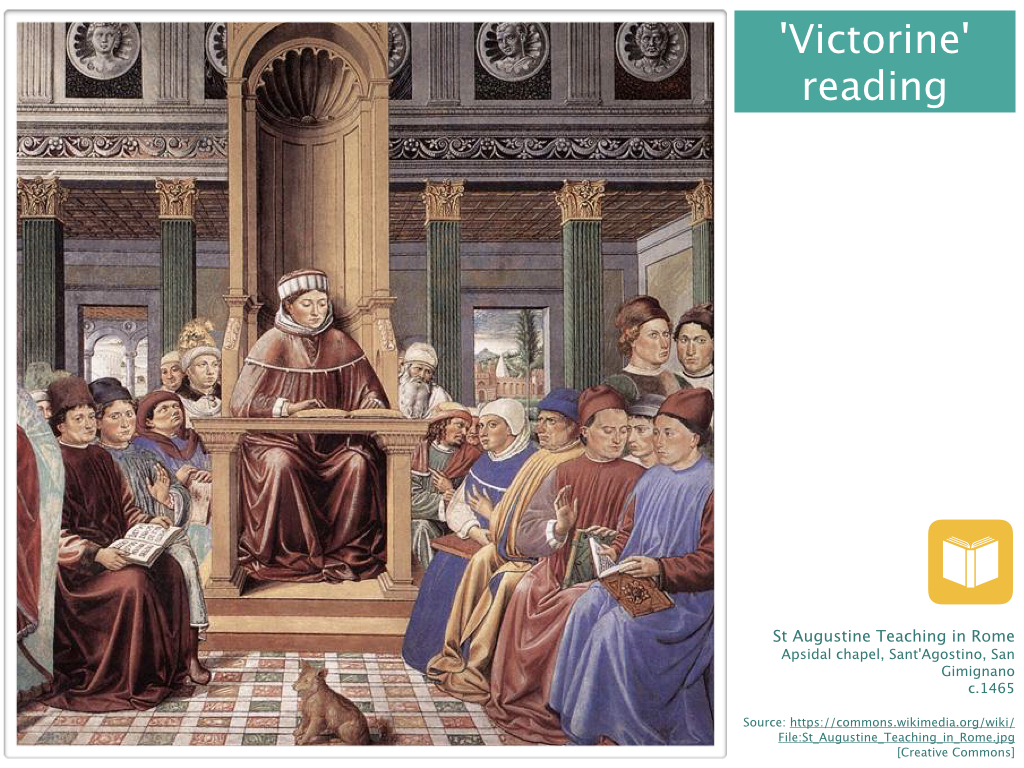Reading Three Ways
4. 'Victorine' reading

Now for the third way of reading: 'Victorine' reading. This is reading for moral and religious instruction, formation and value. It is akin to the ancient understanding of lectio divina. Lectio divina, holy reading, was practiced by early Christian monastics, building on Jewish practices of reading scripture, in which communities of monks gave themselves to a slow, ruminative reading and re-reading of the scriptures. This was part of their daily practice, a means of taking the words of scripture from the surface level of the eyes and the mind down into the heart, the seat of the will and of the affections. They understood that the word needs to be chewed slowly before it can be absorbed by the mind and the heart and that this is the slow, patient work of years. The aim was for transformation of mind and heart, the development of the ‘mind of Christ’ in the believer which not only inform thinking but also shape action and disposition, forming a Christlike character in the believer. Reading undertaken in this spirit and conviction is an act of prayer and devotion as much as it is an intellectual discipline. For the early Christians thought and prayer were not separate spheres; the theologian was a person rooted and grounded in scripture and in prayer and right thinking was the fruit of right living, right praying, right desire.
As well as re-reading the text, how about listening to the text being read to you. Click here to hear the Confessions. As you listen, think about what difference this make to the reading. There is a memorable passage late in the Confessions where Augustine encounters Ambrose reading without his lips moving. He's struck by the novelty of Ambrose's method. To read, classically, meant to read out loud - it was a public, relational event which involved reader and listener in a participative encounter (as depicted in the scene in the fresco above). We've lost that sense of corporate reading, with most of our reading taking place on our own, individually rather than corporately. Reading is always a formative event. We are not the same after as before reading a text. But reading corporately, out loud in the company of others is especially formative.